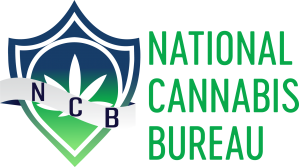More than ever before, the people of Morocco are urging the government to finally legalize cannabis. Three years ago, the plant was approved for export. Since then, farm communities have continued to produce large quantities of cannabis on fertile land, notably in the Rif region. The most recent call for legalization gained global publicity when the National Agency for the Regulation of Activities Related to Cannabis (ANRAC) visited these farms to celebrate the continued growth of the first waves of legal cannabis.
For the past six decades, cannabis has remained illegal in Morocco, despite being the world’s leading provider of hashish, with an infamously successful black market that provides to Europe and beyond. In May 2021, the parliament took a significant step by passing a law allowing the cultivation of cannabis for pharmaceutical and industrial purposes. It is estimated that the country could generate $15 billion with full legalization. “In Morocco, opening a discussion is necessary because regulating cannabis for medical and industrial purposes will not eliminate the existing black market,” said Shakib Al Khayari, coordinator of the Moroccan Coalition for Medical and Industrial Use of Cannabis.
However, even if the country legalizes cannabis, there is intense distrust, fear, and pain among farmers. Although a state plan aims to ensure indigenous peoples receive equal financial benefits from potential cannabis businesses, there remains doubt. Many farmers who would rather stick to the black market to avoid the upfront costs, administrative hurdles, and quality control. Not to mention, a huge shift in production will have to happen that’ll no doubt raise costs of production. Khalid Mouna, a professor at Moulay Ismail University in Meknes who studies Morocco’s cannabis economy, recently told Bloomberg, “Cannabis has been part of the region’s economy for centuries, and changing it overnight will face resistance.”
Complicating matters further, some farmers trust the cartels more than the government given their long history of extreme laws and enforcement practices. For example, an arrest for cannabis can result in a 10-year jail sentence and a fine. To worsen relations between growers and authorities, many farmers have experienced police burning their crops, depriving them and their families of food and livelihoods.
In the eyes of the nation’s state agency, though, legal cannabis businesses could potentially increase farmers’ revenues four or fivefold. Especially if legalization goes beyond medical use. “The real opportunity for Morocco in the long term lies in recreational use,” according to Alastair Moore, co-founder of cannabis-focused consultancy Hanway Associates, “because that’s where their brand is.”
The news of significant documented growth comes after a booming year in harvesting following the first legal harvest, which produced 294 metric tons thanks to the country’s approval of cultivation and export for medicinal and industrial purposes. Around 430 farmers completed their grow jobs in the Northern Rif mountain areas of Al Houceima, Taounat, and Chefchaouen.
Last year, the country granted 54 export permits. So far this year, the number of permits for cultivation increased to 161. Mohamed Guerrouj, head of the National Agency for the Regulation of Activities Linked to Cannabis, praised the impressive results. “This year, we anticipate a significant harvest given the cultivated area,” he told The North African Post. Additionally, the country reported and celebrated its first legal export of THC to Switzerland for medical purposes.
Mohamed El-Guerrouj, a former politician and present leader of ANRAC, is working towards a greener future and smoothing tensions between the palace and farmers. He described the legal growth and steps toward full legalization as “historic.”
Despite harsh laws and slow progress, cannabis is widely accepted by civilians and has long been enjoyed. Two years ago, 80% of the country supported cannabis legalization. This overwhelming support is probably why much of the population backed the infamous drug trafficker Mohammed Al-Rammach, who ran the largest cannabis racket in Morocco in the early 2000s.
When Al-Rammach was arrested in 2003, many civilians decried his arrest because he used the money to support struggling families and create job opportunities. For example, the smuggler would wash his money by opening businesses to employ locals.
Farmers fear that the state will simply allow big pharmaceutical companies and businesses to reap all the rewards. There have been few guarantees, especially in writing, to assure farmers that this won’t happen. Mohamed Benamar, a consultant for ANRAC, is working to cool these tensions as they develop a 10-year plan for legal cannabis sales and use.
Meanwhile, similar to the United States, activists, locals, and farmers will continue to criticize the government’s hypocrisy as they seek to benefit from legal cannabis. On the flip side, there are those who remain hopeful about the change and the progress being made. Despite the challenges and complexities of legalizing cannabis in Morocco, the country’s population strongly supports legalization.
The post Moroccan Farmers Urging Government To Legalize Cannabis first appeared on High Times.

